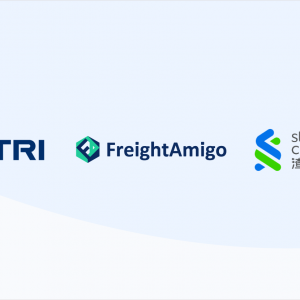Author Name: Tiffany Lee – Marketing Analyst at FreightAmigo
The financial landscape is undergoing a remarkable transformation with the rise of financial technology, also known as fintech. This innovative approach is revolutionizing various sectors, including logistics finance. The integration of digital factoring platforms in logistics finance has brought about significant improvements in the industry, benefiting businesses of all sizes. In this article, we will explore the key aspects of this digital transformation and its impact on logistics finance.
Want To Compare The Best Express, Air Freight, Sea Freight, Rail Freight & Trucking Rates So As To Have Better Control On Cost?
Understanding Logistics Finance
Logistics finance plays a crucial role in the smooth functioning of supply chains. Traditionally, smaller businesses, especially those deeper in the supply chain, have faced challenges in securing financing. Access to financial resources for these businesses has been limited, making it difficult for them to optimize their working capital. However, the emergence of digital factoring platforms has changed the game, providing opportunities for these businesses to leverage their assets and access financing from outside investors or focal companies.
The Role of Financial Technology in Logistics Finance
Financial technology, or fintech, has played a pivotal role in driving the digital transformation of logistics finance. Fintech solutions have introduced intuitive digital platforms that streamline financial transactions and provide real-time monitoring of financial activities. With the integration of artificial intelligence and machine learning, these platforms automate processes, offer valuable insights, and enhance the overall efficiency of logistics finance.
The Power of Digital Factoring Platforms
Digital factoring platforms have become a game-changer in logistics finance. These platforms enable businesses to convert their accounts receivable into cash quickly by selling their invoices at a discount to financial institutions or individual investors. By leveraging the power of fintech, digital factoring platforms eliminate the delays associated with traditional factoring, providing businesses with immediate access to capital. This seamless process accelerates cash flow, empowering businesses to seize growth opportunities and navigate financial challenges efficiently.
Advantages of Digital Factoring Platforms
Digital factoring platforms offer numerous advantages for businesses and investors alike. Let’s take a closer look at some of these benefits:
- Improved Turnover and Productivity: Digital factoring platforms facilitate faster and more efficient payment processes, leading to improved turnover and productivity for businesses.
- Access to Working Capital: Smaller businesses in the supply chain can now access working capital more easily through digital factoring platforms, leveling the playing field and promoting growth.
- Reduced Risk of Default Payments: These platforms provide a secure environment for financial transactions, minimizing the risk of default payments and promoting trust among stakeholders.
- Real-Time Monitoring and Insights: Fintech integration enables real-time monitoring of financial activities, empowering businesses to make data-driven decisions and gain valuable insights into their working capital trends.
- Streamlined Documentation and Processes: By digitizing documentation and automating processes, digital factoring platforms reduce the administrative burden and streamline the entire factoring process.
- Increased Liquidity and Stability: Businesses can enhance their liquidity and stability by leveraging digital factoring platforms, ensuring a seamless flow of funds within the supply chain ecosystem.
The Growing Market Potential
The market potential for digital factoring platforms in logistics finance is immense. According to industry reports, the global trade industry experienced a financing gap of $1.7 trillion in 2020, highlighting the significant need for accessible financing solutions. As the demand for working capital increases, digital factoring platforms are poised to fill this gap and provide businesses with the financial resources they need to thrive.
The Future of Logistics Finance
The future of logistics finance lies in the continued integration of financial technology and the development of advanced digital factoring platforms. As technology advances, we can expect even more seamless and efficient processes, further enhancing the customer experience. With the use of artificial intelligence, machine learning, and data analytics, these platforms will continue to evolve, offering personalized solutions and tailored financing options for businesses in the logistics industry.
Conclusion
The rise of financial technology has revolutionized logistics finance, providing businesses with access to much-needed working capital and streamlining financial processes. Digital factoring platforms have emerged as a powerful tool, enabling businesses to optimize their cash flow, enhance productivity, and navigate financial challenges with ease. As the industry continues to evolve, embracing these innovative technologies is essential for businesses aiming to thrive in the digital age. With the power of fintech and advanced digital factoring platforms, the future of logistics finance looks promising, ensuring a prosperous future for businesses worldwide.
There Are Different Options For Cargo Transportation. If You Want To Choose The Most Convenient And Suitable Solution, It Is Best To Have The Full Support Of Logistics Experts! If You Are Planning To Ship Goods Overseas, Please Go To The FreightAmigo Page For Inquiries.
===
Read More:
【Cosmetic Product Recycling】 A Guide to Sustainable Reverse Logistics
【Rise of Green Supply Chain】 Pioneering Sustainable Practices in Logistics
【ESG in Logistics】 How ESG Practices Drive Social Responsibility in Logistics
===
If you have any inquiries on logistics/supply chain, feel free to contact FreightAmigo now:
Chat with us online OR
Phone : +852 28121686
WhatsApp: +852 27467829



